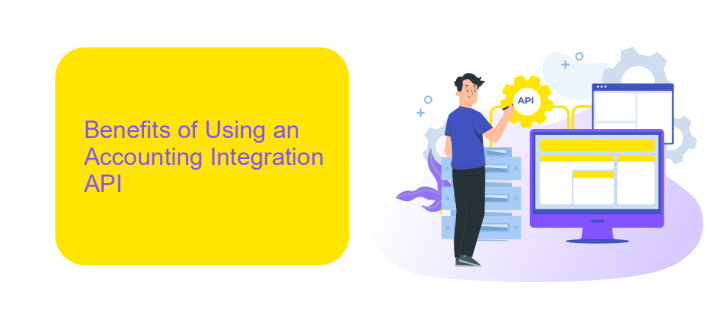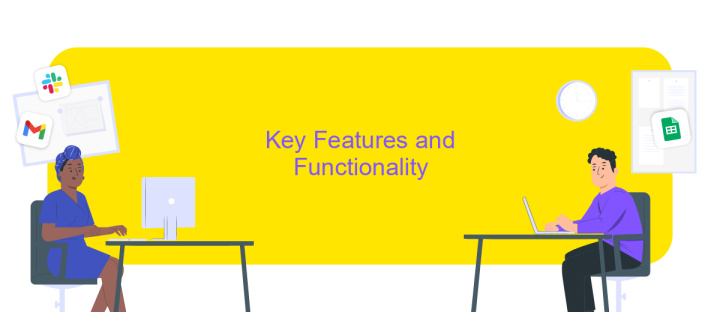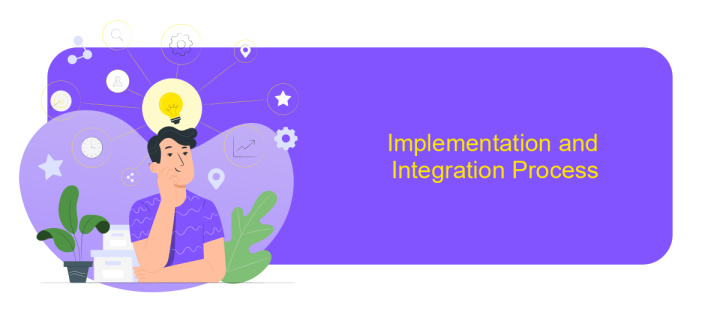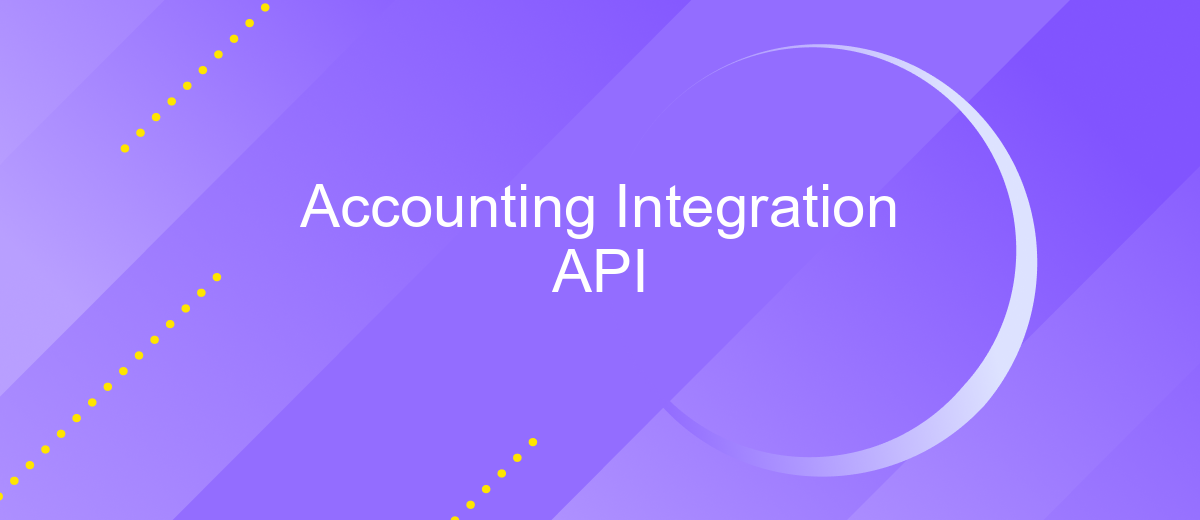Accounting Integration API
In today's fast-paced business environment, seamless financial management is crucial for success. The Accounting Integration API offers a powerful solution for businesses looking to streamline their accounting processes. By enabling seamless connectivity between various financial platforms, this API facilitates real-time data exchange and enhances operational efficiency. Whether you're a small business or a large enterprise, integrating accounting systems has never been easier or more effective.
Introduction to Accounting Integration APIs
In today's rapidly evolving business landscape, the integration of accounting systems via APIs has become a critical component for ensuring seamless financial operations. Accounting Integration APIs allow businesses to connect their accounting software with other applications, facilitating the automatic transfer of financial data. This integration helps in reducing manual data entry, minimizing errors, and enhancing the accuracy of financial reporting.
- Streamlined data exchange between disparate systems
- Improved accuracy and consistency of financial information
- Enhanced efficiency in financial processes and operations
- Real-time access to financial data for better decision-making
- Scalability to accommodate growing business needs
By leveraging Accounting Integration APIs, businesses can achieve a higher level of operational efficiency and financial transparency. These APIs enable companies to automate routine accounting tasks, freeing up valuable time and resources. As a result, organizations can focus on strategic initiatives and gain a competitive edge in the marketplace. The adoption of such integrations is not just a technological upgrade but a strategic move towards future-proofing financial operations.
Benefits of Using an Accounting Integration API

Integrating an Accounting Integration API into your business operations offers numerous advantages, streamlining financial processes and enhancing efficiency. By automating data exchange between accounting systems and other business applications, it reduces manual entry errors and saves valuable time. This seamless integration ensures that financial data is always up-to-date, facilitating more accurate reporting and better decision-making. With real-time access to financial information, businesses can respond swiftly to market changes and maintain a competitive edge.
Moreover, using an Accounting Integration API simplifies the setup of integrations, especially when utilizing services like ApiX-Drive. ApiX-Drive offers a user-friendly platform that allows businesses to connect various applications without the need for extensive technical knowledge. This ease of integration enables businesses to quickly adapt to new tools and technologies, ensuring they remain agile and responsive. Additionally, it minimizes the costs associated with manual data handling and potential discrepancies, ultimately contributing to improved financial health and operational productivity.
Key Features and Functionality

The Accounting Integration API is designed to streamline financial processes by providing seamless connectivity between various accounting systems and platforms. This API allows businesses to automate data exchange, reducing manual entry errors and increasing efficiency. By leveraging this integration, companies can ensure that financial data is consistent, accurate, and up-to-date across all systems.
- Real-time Data Synchronization: Automatically updates accounting records across multiple platforms, ensuring all data is current.
- Customizable Endpoints: Offers flexibility in connecting different financial systems based on unique business needs.
- Robust Security: Implements advanced encryption and authentication measures to protect sensitive financial information.
- Comprehensive Reporting: Provides detailed insights and analytics to help businesses make informed financial decisions.
- Scalability: Easily adapts to growing business demands, supporting additional transactions and data as needed.
Overall, the Accounting Integration API enhances the efficiency of financial operations by providing a reliable and secure method for data exchange. Its advanced features and customizable options make it an essential tool for businesses aiming to optimize their accounting processes and drive better financial outcomes.
Implementation and Integration Process

The implementation and integration of an Accounting Integration API require a structured approach to ensure seamless connectivity between systems. Initially, it is crucial to understand the specific requirements and objectives of the integration. This involves analyzing the existing accounting processes and identifying the data points that need to be synchronized.
Once the requirements are clear, the next step is to design the integration architecture. This includes selecting the appropriate API protocols, such as REST or SOAP, and ensuring that the security measures, like authentication and encryption, are in place. It's essential to develop a comprehensive plan that outlines each phase of the integration process.
- Define the scope and objectives of the integration.
- Select the appropriate API protocols and security measures.
- Develop a detailed integration plan with timelines.
- Conduct thorough testing to ensure data accuracy and integrity.
- Implement monitoring and support mechanisms post-integration.
After the integration is executed, continuous monitoring is vital to maintain data consistency and address any issues promptly. Regular updates and maintenance are necessary to adapt to any changes in the accounting systems or business requirements. A dedicated support team should be available to manage troubleshooting and enhancements.
Use Cases and Examples
Accounting Integration APIs are essential tools for businesses looking to streamline their financial operations. One common use case is automating the transfer of financial data between different software systems, such as transferring sales data from an e-commerce platform to an accounting software. This automation reduces manual data entry, minimizes errors, and ensures real-time financial reporting. Another use case involves integrating payroll systems with accounting software to automatically update employee compensation details, tax deductions, and benefits, ensuring compliance and accurate financial records.
For businesses seeking to simplify the integration process, services like ApiX-Drive offer a user-friendly solution. ApiX-Drive allows users to connect various applications without needing advanced technical skills, facilitating smooth data flow between systems. By using such services, businesses can quickly set up integrations and focus on core operations rather than technical challenges. For example, a small business can use ApiX-Drive to connect their CRM system with their accounting software, ensuring that customer invoices are generated automatically whenever a sale is made, thus enhancing efficiency and reducing administrative workload.
FAQ
What is an Accounting Integration API?
How can I use an Accounting Integration API to automate my accounting processes?
What are the benefits of using an Accounting Integration API?
Do I need technical expertise to implement an Accounting Integration API?
How secure is data transfer through an Accounting Integration API?
Time is the most valuable resource for business today. Almost half of it is wasted on routine tasks. Your employees are constantly forced to perform monotonous tasks that are difficult to classify as important and specialized. You can leave everything as it is by hiring additional employees, or you can automate most of the business processes using the ApiX-Drive online connector to get rid of unnecessary time and money expenses once and for all. The choice is yours!

